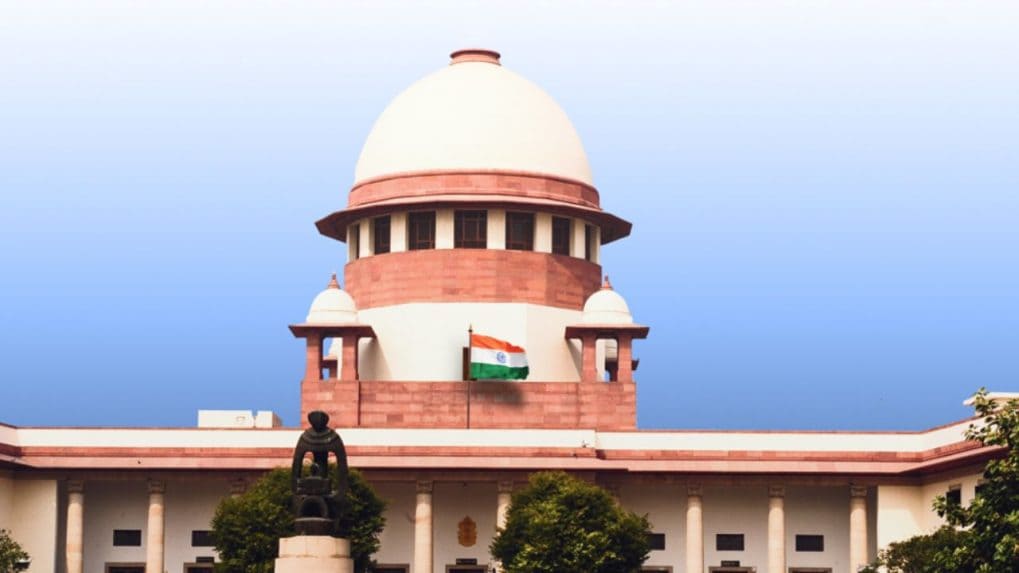SC online gaming case: GST rule a Constitutional overreach, ‘Colourable exercise of power’
Harish Salve submitted arguments whether the participation fees in online games—ranging from card games like rummy to fantasy sports—constitute "actionable claims" that can be classified as "goods" under the GST regime, and thus be taxed accordingly.
ADVERTISEMENT
On Tuesday, former Solicitor General of India and senior advocate Harish Salve presented arguments on behalf of the E-Gaming Federation (EGF), challenging the applicability of Goods and Services Tax (GST) to online gaming platforms. The matter will be heard on May 14 as Salve continues with his submissions.
Appearing before a division bench of the Supreme Court comprising Justices JB Pardiwala and R. Mahadevan, Salve submitted arguments whether the participation fees in online games—ranging from card games like rummy to fantasy sports—constitute "actionable claims" that can be classified as "goods" under the GST regime, and thus be taxed accordingly.
Salve contended that the current GST notifications and show cause notices (SCNs) fundamentally mischaracterize the nature of online gaming. He argued that online gaming platforms act merely as facilitators, not as suppliers of any transferable rights or claims. “There is no ‘actionable claim’ that arises from participating in a game of skill,” Salve asserted, referencing the 2006 Supreme Court ruling in Sunrise Associates, which defined actionable claims in the context of lotteries.
Read More: SC to hear ₹2.5 lakh crore online gaming tax case on May 5
The petition also challenges the blanket application of Rule 31A of the CGST Rules, which mandates that the value of a bet in gambling or betting scenarios be considered 100% of the face value. Under the current interpretation, GST is being levied not just on the platform’s service fee but on the entire pool of money contributed by players—resulting in a tax burden that vastly exceeds the operators' actual earnings.
According to the breakdown provided in court, operators typically retain only 10% of the entry fee as a platform fee, which already includes an 18% GST component. However, the Department's interpretation demands GST at 28% on the entire entry fee, raising the tax liability to more than double the platform's gross earnings.
The petitioners emphasized that in fantasy sports and other skill-based games, the operators do not own or control the prize pool. Instead, players contribute to and compete for the pool, while operators merely earn a pre-defined fee for providing the platform. Additionally, the operators neither participate in the games nor receive a share of the winnings.
The submissions highlighted that players' deposits are maintained in escrow accounts, and winnings are credited directly to individual players’ wallets—emphasizing the separation between the operator's revenues and the game pool.
Salve said, "The essential feature of these games is that a Player who participates in the game plays against other Players, and the Operators only provide and handle the platform but do not participate in the games."
The legal challenge also points to constitutional concerns. Salve argued that the attempt to tax such games as "betting and gambling" contravenes the constitutional scheme, especially after the 101st Constitutional Amendment, which removed state authority to tax betting and gambling under Entry 62 of the State List.
Salve submitted that "Rule 31A is plainly a colourable exercise of legislative power in that it seeks to alter the nature of the tax to a tax on betting and gambling."
Read More: Wagering on game of skill amounts to gambling and betting: Govt of India tells SC
The Supreme Court’s ruling in this case is expected to set a significant precedent in the rapidly growing online gaming sector, which has seen exponential growth in users and revenues. The final decision could reshape how digital entertainment platforms are taxed in India, with billions of rupees at stake.
The case, with an estimated financial impact of ₹2.5 lakh crore, is one of the biggest tax battles in India’s history. Gaming companies are challenging the government’s interpretation of Rule 31A of the CGST Rules, which states that GST at 28% should be levied on the face value of each bet. The industry argues that this rule applies only to gambling and betting, not to games of skill like rummy, poker, or fantasy sports.
Read More: Supreme Court hears Centre’s ‘Seven Sutras’ on gambling in online games
Read More: ‘Scintilla of Skill’ argument returns as gaming companies challenge govt's stance in SC


